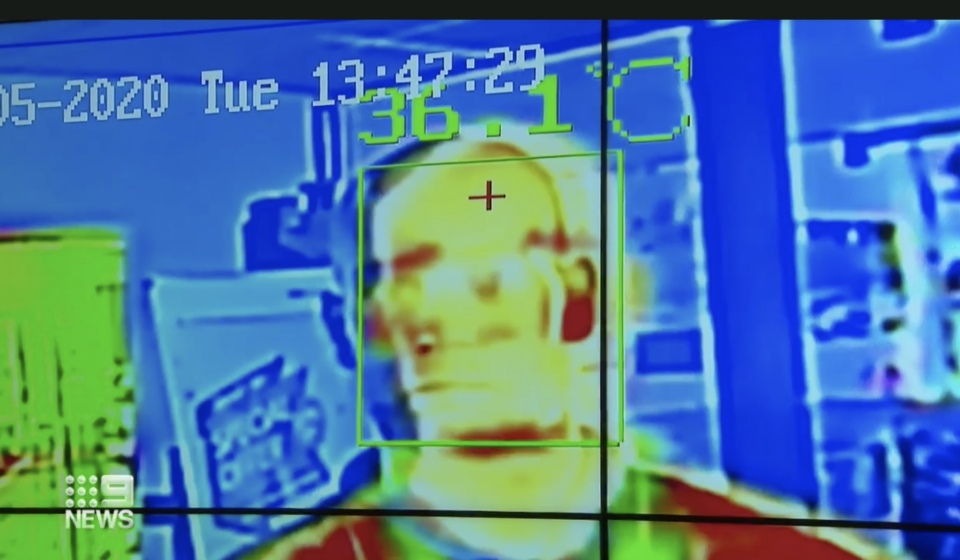Bold new plan to sniff out coronavirus cases in Australian cities
A fast and efficient technology which can identify somebody with a fever could become part of Australia’s “new normal” as the country slowly starts easing coronavirus restrictions.
Thermal imaging cameras may become as common place as security cameras in the future, given the technology can detect high temperatures in humans, meaning potential coronavirus cases.
In a Nine News report, it was stated nursing homes, shopping centres, offices, hotels and airports are some of the industries considering installing thermal imaging cameras to identify potentially risky people during the pandemic.

The report featured a Chinese-based video surveillance company called Hikvision, which offers the technology and sells it as a “flexible product choice for a multitude of scenarios” on their website.
The thermal cameras detect skin surface temperature “to achieve rapid and safe preliminary screening”, the company promises, advertising that the Hikvision cameras can register a person’s temperature in just one second.
“I think we'll see them everywhere pretty much,” Gary Hickey from Hikvision told Nine News.
While a fever is one of the symptoms of the coronavirus, not all those with the virus get a fever, some may show other symptoms while others are entirely asymptomatic.
The World Health Organisation warns that while thermal scanners are effective at detecting people with a high fever, the products cannot detect if a person has COVID-19, pointing out there are many reasons as to why a person may have fever.
The pub feed returns: How state's pubs and clubs can open this Friday
'Spells trouble': Hidden threat as restaurants, pubs and cafes start to open
While Sydney’s St Vincent’s Hospital has already rolled out the Hikvision devices, Latrobe Regional Hospital and global logistics company DHL have also implemented thermal cameras from Advent Security.
Latrobe Regional Hospital praised the Advent Security technology in a press release claiming it “greatly supported our COVID-19 screening strategy”.

Canberra Airport has also installed thermal imaging cameras, with the hope to reassure air passengers by adding an extra layer of security, according to the Canberra Times. It is up to the airline and the person identified to decide what happens if they are found to have a fever, not the airport.
While the new technology may be radical to Australians, it has been used in other parts of the world for some time and is becoming more commonplace in light of the pandemic.
Due to the previous epidemics, like SARS and H1N1, Asia has utilised this technology for quite some time at places like airports and rail stations.

Do you have a story tip? Email: newsroomau@yahoonews.com.
You can also follow us on Facebook, Instagram and Twitter and download the Yahoo News app from the App Store or Google Play.





